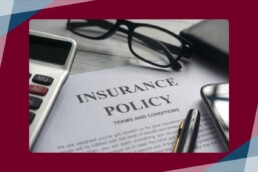Employment Practices Liability Insurance: A Complete Guide
Studies show that almost 1 in 18 women, and 1 in 40 men, have experienced sexual harassment in the workplace. So when the Me Too movement globally exploded in 2017, it brought to light how serious sexual harassment is.
There are more allegations of discrimination and harassment at work than ever before. For this reason, employment practices liability insurance is becoming increasingly important for businesses of all sizes.
In this article, you will learn about EPLI and how it can help companies facing serious employee allegations. Let’s jump in.
Employment Law
In the US, several laws grant various protections to workers. As an employer, it’s crucial to understand these policies. Failure to understand them could lead to disgruntled employees, and facing lawsuits for violating these laws.
Some examples include the Americans with Disabilities Act of 1990 and the Age Discrimination in Employment Act. These state that employers cannot discriminate based on people with a disability or age.
Civil Rights Acts
Title VII of the 1964 Civil Rights Act prohibits discrimination based on:
- Race
- Color
- Religion
- National origin
- Sex
- Pregnancy
- Sexual harassment
The 1966 version outlaws discrimination based on race and ethnic origin. A key provision in the 1991 version requires a jury trial for work-related discrimination if the plaintiff desires. It was this provision that spurred the expansion of EPLI.
Equal Pay Act
This 1963 law bans employers from paying different wages to men and women who do the same job under comparable working conditions. But, the equal pay gap is still persistent in American working culture even though the law protects equal pay.
What Is Employment Practices Liability Insurance?
Employment practice liability insurance (EPLI) gives protection to your business from claims or lawsuits alleging:
- Sexual harassment
- Discrimination
- Wrongful termination
- Failure to promote
- Other defined employment-related allegations
The insurance covers your legal expenses when an employee sues, and the funds will cover attorney’s fees, settlement costs, legal judgments, administration costs, and other court costs. The funds will not cover punitive damages, civil fines, or criminal fines. Additionally, EPLI coverage excludes liabilities covered by workers’ compensation.
EPLI coverage has grown over the past 20 years, and more employers are aware of its importance. Large corporations have comprehensive coverage to manage any employment lawsuit.
Yet, small and new businesses are more vulnerable to employment claims because they lack a legal department. All companies should have an employee handbook which details:
- Hiring policies and procedures
- Disciplining
- Terminating employees
An employee handbook documents company policies and practices, which you can use in court if necessary. If a company doesn’t have any basic human resources policies, it will not be eligible for EPLI coverage.
Policies should cover discrimination, harassment, and accommodations for employees with disabilities.
EPLI works on a claims-made basis. Thus, the incident resulting in the claim must’ve occurred during the coverage period. But, sometimes, employees make claims months or years after the alleged incident. This means having continuous coverage is essential to ensuring protection.
EPLI Cost
EPLI coverage costs will depend on several key factors. They are:
- Type of business
- Number of employees
- Employee turnover rate
- Established rules and regulations
- Risk factors
Risk factors include previous employment practices liability insurance claims against the company.
Who Poses an Employment Practices Liability Insurance Risk?
You can risk an employment claim from the moment you interview a prospective employee. If you choose not to hire an interviewee, that person could sue for discrimination, if applicable.
New employees offer the most significant risk simply because they are new. They don’t yet know the company policies and culture like long-term employees. So if you fire them early in their employment, they can claim wrongful termination.
How To Lower Your Liability Risk
Every business is going to have risks with employment practices. But, there are several things companies can do to minimize them. As mentioned, one of the most significant ways to mitigate risk is to create an employee handbook. This way, policies are clear.
Your company should create effective hiring and screening programs. This helps to avoid discrimination in hiring practices.
Most employers use an equal employment opportunity statement on their application. The statement means if you hire someone, you hire them “at will.” You can end their employment at any time, for any or no reason, and with or without notice.
You can also create a job description for each position that lays out the expectations. Having regular performance reviews helps keep expectations clear. The reviewer should always maintain detailed review notes in each employee’s file.
You should also show what steps employees should take if they experience harassment or discrimination. Of course, you should have a zero-tolerance policy and make clear to your employees that you will stand with them should something occur.
When in doubt, document everything. It would be best if you had all company policies and procedures accessible to employees at all times. Transparency is essential. But also, if you need to go to court, you have all the documents to present in your case.
Employer’s Liability Insurance vs. Employment Practices Liability
As discussed, EPLI covers lawsuits related to employment practices. Conversely, an employer’s liability coverage pays for lawsuits over employee injuries. Both protect businesses from employee lawsuits.
They are equally important because both lawsuits can cost thousands, if not millions, of dollars. But they are separate because there are some jobs with a much higher risk of physical injury. For example, a construction worker is more likely to sustain workplace injuries than an office employee.
For reference, worker’s compensation includes employer’s liability insurance.
Protect Your Business, Protect Your Employees
Employment practices liability insurance is necessary for every business. If an employee ever sues your company, you will be protected. Remember, EPLI favors employees too. It forces businesses to create standard practices and guidelines.
Get started with a free quote if you’re ready to protect your business today. At Oliver L.E. Soden Agency, our experienced professionals will help you find the right insurance for your business.
Related Articles
Homeowners Insurance in NJ: A Comprehensive Guide
Key Takeaways Homeowners insurance in NJ protects your home, personal property, and liability, making it essential for safeguarding your investment. Annual…
What You Need to Know About Flood Insurance in NJ
Key Takeaways Flood insurance is essential for New Jersey homeowners, even those outside high-risk zones, as flooding can occur anywhere from various sources…


